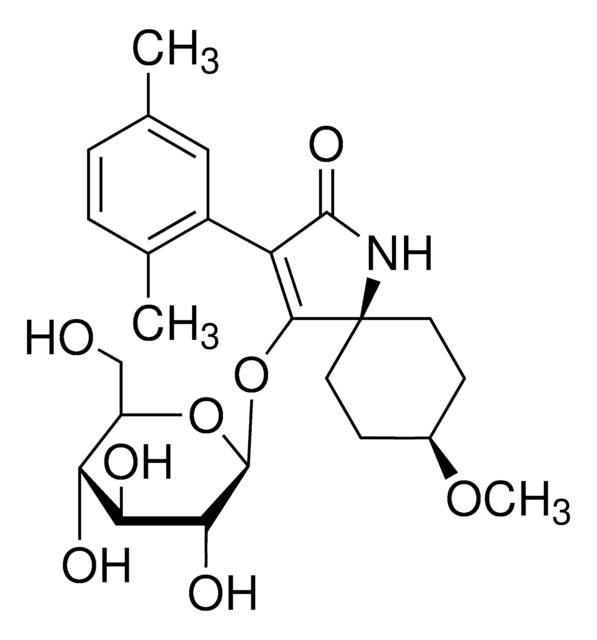33226
Glycine
puriss. p.a., reag. Ph. Eur., buffer substance, 99.7-101% (calc. to the dried substance)
Synonyme(s) :
Acide aminoacétique, Acide aminoéthanoïque, Glycocolle
About This Item
Produits recommandés
Agence
USP/NF
reag. Ph. Eur.
Niveau de qualité
Qualité
puriss. p.a.
Pureté
99.7-101% (calc. to the dried substance)
Forme
crystalline powder
Technique(s)
IR spectroscopy: suitable
Impuretés
≤0.001% heavy metals (as Pb)
≤0.02% ammonium (NH4)
≤0.1% water (Karl Fischer)
≤1.0% ninhydrin-positive substances
Résidus de calcination
≤0.05% (as SO4)
Perte
≤0.5% loss on drying, 105°C, 2 h
pH
5.9-6.4 (20 °C, 5%)
pKa (25 °C)
(1) 2.35, (2) 9.60
2.35
Pf
240 °C (dec.) (lit.)
Traces d'anions
chloride (Cl-): ≤30 mg/kg
sulfate (SO42-): ≤20 mg/kg
Traces de cations
Fe: ≤5 mg/kg
Adéquation
in accordance for identity (IR)
Groupe fonctionnel
amine
carboxylic acid
Chaîne SMILES
NCC(O)=O
InChI
1S/C2H5NO2/c3-1-2(4)5/h1,3H2,(H,4,5)
Clé InChI
DHMQDGOQFOQNFH-UHFFFAOYSA-N
Informations sur le gène
rat ... Grin2a(24409)
Vous recherchez des produits similaires ? Visite Guide de comparaison des produits
Application
- A reactant in the natural soil clay-catalyzed cleavage and polycondensation with pyrogallol.
- A catalyst in the Knoevenagel reaction between aryl aldehydes and malononitrile to form a C=C bond.
- A reagent in the metal-free synthesis of biaryls from aryl sulfoxides and sulfonanilides via sigmatropic rearrangement.
Actions biochimiques/physiologiques
Code de la classe de stockage
11 - Combustible Solids
Classe de danger pour l'eau (WGK)
WGK 1
Point d'éclair (°F)
Not applicable
Point d'éclair (°C)
Not applicable
Équipement de protection individuelle
Eyeshields, Gloves, type N95 (US)
Faites votre choix parmi les versions les plus récentes :
Déjà en possession de ce produit ?
Retrouvez la documentation relative aux produits que vous avez récemment achetés dans la Bibliothèque de documents.
Les clients ont également consulté
Notre équipe de scientifiques dispose d'une expérience dans tous les secteurs de la recherche, notamment en sciences de la vie, science des matériaux, synthèse chimique, chromatographie, analyse et dans de nombreux autres domaines..
Contacter notre Service technique
